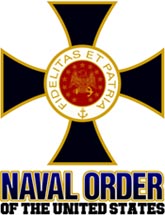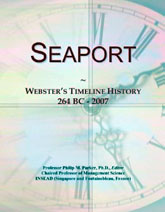Central America
Costa Rica ° El Salvador ° Guatemala ° Honduras ° Nicaragua
° Nicaragua Canal
Panama:
° Aspinwall
° Cruces
° The Canal
° Panama Railroad
El Salvador

El Salvador was inhabited by Paleo-Indian people as early as 10, 000 years ago; their paintings (the earliest of which date from 8000 BC) can still be seen and marveled at in caves outside the towns of Corinto and Cacaopera, both in Morazan.
The Olmecs were the first advanced MesoAmerican civilization, and are believed to have lived in present-day El Salvador as early as 2000 BC.
El Salvador was an important trading center; its archaeological remains show evidence of a number of influences, including Teotihuacan and Pipil Mayan in the west, and Lenca, Chorti and Pok'omama in the east.
In 1524 Pedro de Alvarado landed and began a series of campaigns that resulted in Spanish control.
With independence from Spain in 1821, El Salvador became briefly a part of the Mexican Empire of August n de Iturbide, and after the empire collapsed in 1823, El Salvador joined the Central American Federation.
El Salvador protested the dominance of Guatemala and under Francisco Morazan succeeded in having the federal capital transferred (1831) to San Salvador. After the dissolution of the federation (1839), the republic was plagued by frequent interference from the dictators of neighboring countries, notably Rafael Carrera and Justo Rufino Barrios of Guatemala and Jose Santos Zelaya of Nicaragua.
The primacy of coffee cultivation in the economy began in the second half of the 19th cent. Intense cultivation led to the predominance of landed proprietors, and the economy became vulnerable to fluctuations in the world market price for coffee.
December 18, 1861, The New York Times, New York, New York
CENTRAL AMERICA.
The Panama Railroad Company's steamer California, chartered in place of the Guatemala, which broke her shaft near Punta Arenas de Costa Rica, arrived at Panama on the 4th, having the Guatemala in tow.
The dates from Guatemala and Salvador are to the 24th and 26th, from Nicaragua to the 28th, and from Costa Rica to Dec. 1. There is nothing immportant from Guatemala, Nicaragua or Costa Rica. Salvador, as well as New-Granada, is the theatre of Church excitement. Sometime since, the Bishop of Salvador demanded the punishment of one of President Barrios' Ministers, for having rather freely commented -- but in general terms -- on the abuses of the Church. This demand led to a sharp correspondence in which the Bishop was plainly told that he would not be allowed to meddle in State affairs. Since then affairs have been getting worse and worse between the civil and Church dignitaries, till Barrios has been compelled to exile the Bishops, who has gone to Guatemala. Another high churchman has fled to Panama, and the priests all over the country are packing up to make tracks. Salvador has always been a good deal priest-ridden, and there would be considerable danger of a revolution were it not that Barrious is a military man, and . . . pays his soldiers and officers before anybody else is paid.
Saturday, September 16, 1865, New York Times, New York, New York, U.S.A.
CENTRAL AMERICA.
Arrest and Execution of President Barrios
Popular Resentment Against the Government
End of the Revolution in Honduras.
The Panama Railroad Company's steamship Parkersburg arrived at Panama, from Central American ports; yesterday morning.
The only important item of news is, that the Government of President Duenas, of Salvador, had tried, by court-martial, Ex-President Gen. Gerardo Barrios, of Salvador, and shot him. Gen. Barrios, it will be recollected, was overthrown nearly two years since by the joint action of the rebels of his own State and the army of Guatemala, and escaped. He came to Panama and then went to New-York and Washington with his lovely wife, where they made many friends in government as well as in private circles.
After several months in the United States, he returned to Panama, and a few months since sailed from here in a vessel bearing the American flag for Salvador, where he was promised aid to recover his lost power. He proceeded on his voyage, but his vessel having been struck by lightning and badly damaged, he was obliged to put into the port of Realejo, Nicaragua, for safety. There his vessel's papers, which were made by the United States Consul at Panama, were declared to be forgeries, and she was seized by the Nicaraguan Government, which was friendly to Duenas. Commissioners were sent from Salvador to Nicaragua to demand the rendition of Gen. Barrios, and he was given up on the express stipulation that he was under no circumstances to suffer death.
On the arrival of Gen. Barrios in Salvador, he was thrown into prison and condemned to death, on the flimsy and dishonest pretence that the action of the commissioners was illegal, as it restrained the Government of Salvador of its sovereignty. The unfortunate man was notified of his sentence on the 28th of August, at 11 at night, and in five hours after was shot, having been refused three hours longer to settle his private affairs.
In Salvador, a deep feeling is said to exist against the government for this barbarous act, and in Nicaragua the feeling against Duenas for the act, and his bad faith, is intense. The news will be received by hundreds in the United States with deep regret.
August 28, 1890, Muskogee Phoenix, Muskogee, Oklahoma, U.S.A.
GENERAL OF DIVISION
Ignacio Ballatoir has been appointed by President Diaz of Mexico as a special Minister to Central America, resident in Guatamala, with confidential instructions to act as mediator in affairs between San Salvador and Guatemala.
1899. World's Fleet. Boston Daily Globe
Lloyds Register of Shipping gives the entire fleet of the world as 28,180 steamers and sailing vessels, with a total tonnage of 27,673,628, of which 39 perent are British.
| Great Britain | 10,990 vessels, total tonnage of 10,792,714 |
| United States | 3,010 vessels, total tonnage of 2,405,887 |
| Norway | 2,528 vessels, tonnage of 1,604,230 |
| Germany | 1,676 vessels, with a tonnage of 2,453,334, in which are included her particularly large ships. |
| Sweden | 1,408 vessels with a tonnage of 643, 527 |
| Italy | 1,150 vessels |
| France | 1,182 vessels |
For Historical Comparison
Top 10 Maritime Nations Ranked by Value (2017)
| Country | # of Vessels | Gross Tonnage (m) |
Total Value (USDbn) |
|
|---|---|---|---|---|
| 1 | Greece | 4,453 | 206.47 | $88.0 |
| 2 | Japan | 4,317 | 150.26 | $79.8 |
| 3 | China | 4,938 | 159.71 | $71.7 |
| 4 | USA | 2,399 | 55.92 | $46.5 |
| 5 | Singapore | 2,662 | 64.03 | $41.7 |
| 6 | Norway | 1,668 | 39.68 | $41.1 |
| 7 | Germany | 2,923 | 81.17 | $30.3 |
| 8 | UK | 883 | 28.78 | $24.3 |
| 9 | Denmark | 1,040 | 36.17 | $23.4 |
| 10 | South Korea | 1,484 | 49.88 | $20.1 |
| Total | 26,767 | 87.21 | $466.9 | |



 International Seaport History
International Seaport History
 Copyright ~ 1998-2018.
Copyright ~ 1998-2018. 